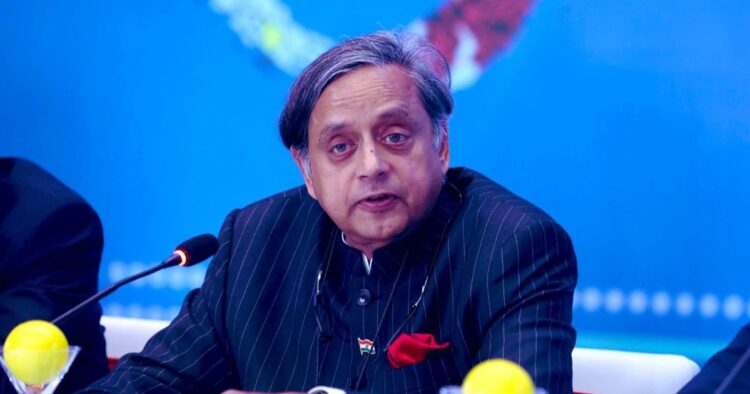Among the many in the Indian opposition, Shashi Tharoor stands out as a veteran leader who has repeatedly proven why he is worth the hype. His recent remarks regarding India’s stance on the Russia-Ukraine war struck a chord with the masses. Unlike some of his colleagues, Tharoor “called a spade a spade.”
At the recent Raisina Dialogue held in New Delhi, Tharoor openly stated, “Clearly, the policy has meant that India has a prime minister who can hug both the president of Ukraine and the president in Moscow two weeks apart and be accepted in both places,” acknowledging that he was left with “egg on his face” for opposing India’s neutral stance when the war began in 2022. He went on to praise the government’s position, highlighting how India’s unique approach has enabled it to play a significant role in fostering lasting peace.
Tharoor’s statements are not unexpected. He is simply echoing sentiments already expressed by several world leaders. Russian President Vladimir Putin himself has previously expressed gratitude to Prime Minister Modi, along with former U.S. President Donald Trump, for their efforts to bring the war to an end.
Trump has acknowledged Russia’s sovereign interests, keeping in mind its concerns about NATO’s eastward expansion—offering indirect support for India’s diplomatic stance. This gives India’s foreign policy a reason to feel validated. Meanwhile, European countries that had distanced themselves from Russia appear to be gradually recalibrating, reducing criticism against India for maintaining relations with Moscow.
When hostilities began in 2022, India came under significant pressure from the West to condemn Putin, with some labeling him a ‘war criminal.’ India was also criticized for purchasing Russian oil at discounted rates. There was an assumption in the West that through forums like QUAD, India would be compelled to take a stronger position against Russia.
However, India made it clear that its decisions would be guided solely by its national interests. While joining the QUAD had strategic value, maintaining ties with Russia was equally crucial, particularly to prevent Russia from becoming overly dependent on China. India also underscored the fact that Russia remained a major arms supplier, despite its efforts to diversify procurement sources.
On the economic front, India’s decision ensured domestic stability. The discounted Russian oil helped keep fuel prices low, aiding inflation control—something many other countries struggled with.
In an interview with CNN-News18, Polish Deputy Foreign Minister Władysław Teofil Bartoszewski credited India with persuading President Putin to refrain from using nuclear weapons in the war—highlighting India’s diplomatic leverage.
Today, India enjoys a comprehensive strategic partnership with Russia, free from global reproach, including from the United States. The Indo-Russian relationship appears to have strengthened, while India also maintains strong ties with the U.S.—both nations recognizing Russia as a common point of engagement.
Furthermore, as U.S.-Russia relations begin to show signs of easing, Russia’s dependency on China may decline. If Trump is willing to challenge his European allies, it suggests that Putin may also reduce his reliance on Xi Jinping in diplomatic matters.
Domestically, the sense of embarrassment for opposing the government’s neutral stance is likely to remain temporary. Ultimately, a collective positive outcome will benefit all sides. Tharoor clearly understands that the strategic gamble taken by Prime Minister Modi is set to bolster India’s foreign policy in the long run.

















Comments